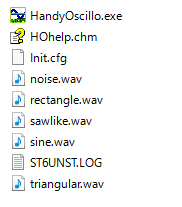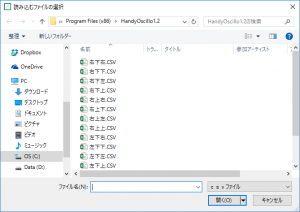Edited, memorised or added to reading queue
on 22-Dec-2017 (Fri)
Do you want BuboFlash to help you learning these things? Click here to log in or create user.
| status | not read | reprioritisations | ||
|---|---|---|---|---|
| last reprioritisation on | suggested re-reading day | |||
| started reading on | finished reading on |
| status | not read | reprioritisations | ||
|---|---|---|---|---|
| last reprioritisation on | suggested re-reading day | |||
| started reading on | finished reading on |
| status | not read | reprioritisations | ||
|---|---|---|---|---|
| last reprioritisation on | suggested re-reading day | |||
| started reading on | finished reading on |
| status | not read | reprioritisations | ||
|---|---|---|---|---|
| last reprioritisation on | suggested re-reading day | |||
| started reading on | finished reading on |
| status | not read | reprioritisations | ||
|---|---|---|---|---|
| last reprioritisation on | suggested re-reading day | |||
| started reading on | finished reading on |
| status | not read | reprioritisations | ||
|---|---|---|---|---|
| last reprioritisation on | suggested re-reading day | |||
| started reading on | finished reading on |
| status | not read | reprioritisations | ||
|---|---|---|---|---|
| last reprioritisation on | suggested re-reading day | |||
| started reading on | finished reading on |
| status | not read | reprioritisations | ||
|---|---|---|---|---|
| last reprioritisation on | suggested re-reading day | |||
| started reading on | finished reading on |
| status | not read | reprioritisations | ||
|---|---|---|---|---|
| last reprioritisation on | suggested re-reading day | |||
| started reading on | finished reading on |
| status | not read | reprioritisations | ||
|---|---|---|---|---|
| last reprioritisation on | suggested re-reading day | |||
| started reading on | finished reading on |
| status | not read | reprioritisations | ||
|---|---|---|---|---|
| last reprioritisation on | suggested re-reading day | |||
| started reading on | finished reading on |
| status | not read | reprioritisations | ||
|---|---|---|---|---|
| last reprioritisation on | suggested re-reading day | |||
| started reading on | finished reading on |
Latest topics > Windows 7のVirtualStoreに泣かされた - outsider reflex
ox Hacks Rebooted ―Mozillaテクノロジ徹底活用テクニック posted with amazlet at 11.10.30 浅井 智也 池田 譲治 小山田 昌史 五味渕 大賀 下田 洋志 寺田 真 松澤 太郎 オライリージャパン Amazon.co.jp で詳細を見る « JavaScriptのスタックトレース Main 愚行権 » Back to Home Syndicate this site (XML) <span>Windows 7のVirtualStoreに泣かされた - Jul 29, 2010 「C:\Program Files\foo\bar\hoge.txt」という位置にあるファイルを読み込んで処理するアプリケーションを開発していて、テストって事でhoge.txtを書き換えてみたのに、アプリケーションの方でhoge.txtを読み込んでみると、書き換える前の内容が返ってくるんですよ。え、このhoge.txtじゃなくて別の位置のhoge.txtを読みに行っちゃってるの? と思って「C:\Program Files\foo\bar\hoge.txt」を消してみると、「ファイルが見つかりません」ってエラーになるんですよね。だから見に行ってるのは確かにこのファイルで間違いないはずなのに。 僕は普段秀丸エディタを使ってるんですが、秀丸エディタって、書き込み権限が無いファイルを開くと「読み込み専用」って表示されて閲覧だけの状態になるんですよね。でも今回のhoge.txtはそうなってないから、ちゃんと書き換えも保存もできてるんですよ。一回秀丸エディタのウィンドウを閉じて、もう一度「C:\Program Files\foo\bar\hoge.txt」を開くと、さっき保存した時の内容になってるんで、書き込みに失敗したというわけでもない。なのに、自作のアプリで「C:\Program Files\foo\bar\hoge.txt」を開くと、秀丸エディタで書き換える前の内容が返ってくる。他にも同じ現象が起こってる人がいるみたいだし。何なんですかこれは? ……結論から言うと、犯人はWindows Vista以降で導入されたVirtualStoreという仕組みでした。 Windows Vista以降ではファイルに対して書き込みができない時に、「書き込めませんでした」というエラーを出す代わりに「C:\Users\ ユーザ名 \AppData\Local\VirtualStore」っていうフォルダの中にファイルを書き出すアプリケーションがあるみたいなんですね。今回は秀丸エディタがそうだったんですけど。実際、「C:\Users\ ユーザ名 \AppData\Local\VirtualStor\Program Files\foo\bar\hoge.txt」を見たら、さっき書き換えたはずの内容でhoge.txtが存在していました。 で、この状態で秀丸エディタで「C:\Program Files\foo\bar\hoge.txt」を開こうとすると、Windowsが「C:\Users\ ユーザ名 \AppData\Local\VirtualStor\Program Files\foo\bar\hoge.txt」の内容を返すみたいなんですよ。これはWindowsのファイル入出力の仕組みが透過的にやっていることらしくて、秀丸から見た時のファイルの位置はあくまで「C:\Program Files\foo\bar\hoge.txt」のままであるというのがポイント。で、この時メモ帳などの別のアプリケーションから「C:\Program Files\foo\bar\hoge.txt」を開くと、今度はVirtualStoreの方ではなく「C:\Program Files\foo\bar\hoge.txt」の実体の方が返される。その結果、「秀丸エディタとメモ帳でそれぞれ同じファイルを開いてるはずなのに、実際に見えてる内容が違う」という現象が起こる。 しかも最悪なことに、どうやら一回この状態に嵌ってしまうともうお手上げのようで、それ以後は秀丸ではVirtualStoreの方のファイルにしかアクセスできないんですよね。参った。もうVirtualStoreを全部消してしまいたい位なんですけど、VirtualStoreを見てみると他にもいろんなファイルが存在してるので、同じようにVirtualStoreの方の内容が返ってきてるお陰で正しく動作しているという状態のアプリケーションが他にもあるんだったら、不用意にVirtualStoreを消してしまうと大変なことになりかねないので消すわけにもいかない。 「コントロールパネル」→「管理ツール」→「ローカル セキュリティ ポリシー」で「セキュリティの設定」→「ローカル ポリシー」→「セキュリティ オプション」→「ユーザー アカウント制御:各ユーザの場所へのファイルまたはレジストリの書き込みエラーを仮想化する」を「無効」にするとVirtualStoreを無効にできるようなので、クリーンな環境でWindows VistaやWindows 7を使い始める時は、無効にしとくといいような気がします。本来できないはずの事をユーザに気取らせずにやろうとするから無理が生じるのであって、システムファイルをいじれるのは管理者権限がある人だけというルールを徹底していれば、無駄な混乱はしなくて済むのです。LinuxとかBSDとか、そういうものですし。 追記。付いたコメントの中に、僕の目には「Program Files以下にあるファイルをわざわざユーザが書き換えなきゃいけないという仕様が今の時代にはそもそもあり得ないでしょ。技術レベルの低い無能な似非プログラマがWindowsの仕様に逆ギレとか、まったく自業自得のくせに滑稽極まりないし。プププのプー」と言っているように見える物がいくつかあったけれども、Firefoxでいえばapplication.iniにあたるような、そう頻繁に書き換える訳じゃないけど可変のパラメータを外部ファイルで定義できるようにしておくためのファイルをいじってテストしてた時に遭遇した話なので、結構イラッとしました。 分類:出来事・雑感, 出来事 , 時刻:11:28 | Comments/Trackbacks (8) | Edit inシェア このカテゴリ以下の他のエントリ Qiitaで許容される内容の不明点 2016年のアドベントカレンダーのふり返り 女性エンジニアが自分の好きなように生きられるように、あるいはただの惚気話 アドベントカレンダーいろいろ 自民党の教師通報フォームの一体何が「問題」なのかを考えてみて、これを問題と思わなか
| status | not read | reprioritisations | ||
|---|---|---|---|---|
| last reprioritisation on | suggested re-reading day | |||
| started reading on | finished reading on |
あるはずのファイルが見れない!?VirtualStoreで苦労 | パソコン・スマホ×無料=無限大
トップページ はじめに プロフィール フリーソフト カード ホーム > 技術的なお話 > <span>あるはずのファイルが見れない!?VirtualStoreで苦労 2016/09/18 こんにちは。 さて、今回はWindowsのご丁寧な、ある意味迷惑な機能、「VirtualStore」について書いておきます。 そもそも、なんでこんなことを書こうと思ったのか、ですが… 先日、ハンディ・オシロスコープというソフトでデータを記録していたわけですが… インストール先の「C:\Program Files (x86)\HandyOscillo1.2\」に記録したデータが保存されているはずなんですが、エクスプローラーで開いても見つからないんです。 ところが、ハンディオシロスコープ内から「ファイルを開く」ダイアログで見ると、なぜだかあることになっているんですね… 記録が取り出せないので困った、ということで調べてみたところ、VirtualStoreという機能により、実際は、「C:\Users\ユーザー名\AppData\Local\VirtualStore\Program Files (x86)\HandyOscillo1.2」に保存されていたというわけです。 さて、これはどのような機能で、何のためにあるかという話ですが… 一般ユーザー(ソフトウェア)が、書き込み権限のないディレクトリに書き込みをしようとすると、以前のWindowsではエラーを返していました。 ところが、いつからか、Windowsが勝手に%LocalAppData%にあるVirtualStoreディレクトリに書き込み、ソフトウェアには正常に書き込めたようにふるまうというものです。 管理者権限を持ったユーザーからすれば、結構不便な話です。 ちなみに、腹が立ったら、無効化してしまえばいいんです。 こちらのサイトが参考になります↓ Windows Vista/7 のファイルの仮想化(Virtualization)について ただ、無効にしたということは、管理者権限でソフトウェアを起動しないと、そのディレクトリには書き込めないということです。 今回の例でいうと、ハンディオシロスコープは、管理者権限を与えない限り、データを保存できなくなるということです。 万が一、管理者権限で起動し忘れた場合、どんなにいい記録が取れたとしても、保存することはできないわけです。それはそれで不便かもしれませんが… どうするかはお任せしますが、何かあっても責任は負いませんので、自己責任でお願いします。 では、ノシノシ [imagelink] [imagelink] [imagelink]1 http://tani-page.com/?p=1095あるはずのファイルが見れない!?VirtualStoreで苦労 LINEで受信した画像が崩れていた時の直し方2015年3月19日Android LINEのトーク履歴が吹っ飛んだ時の復元方法…(iOSのみ)20
| status | not read | reprioritisations | ||
|---|---|---|---|---|
| last reprioritisation on | suggested re-reading day | |||
| started reading on | finished reading on |
元京大生が考える独学英語勉強法
出する過程・学習法を書いていきます。 2017-10-28 <span>実践英語「凹みに凹んで気づいたこと」in Jakarta ジャカルタ実践 スピーキング こんにちは、イカ京です。 出張やらなんやらで結構忙しい日々を過ごし、気づけばもうジャカルタに来て1か月が経ちました。 時間って早いよね~って言ってる間に一年ぐらい経ってしまいそうです。。。。 つまりそのぐらい早く歳をとっていくんですね。かなしいかな。 ちなみにジャカルタのケンタッキーには何故かライスボールが付いてきました笑 袋開けたときに思わず「なんでやねん」って言ってしまいました。 実践28日目 一日一回は絶対にスタッフと打ち合わせ等で英語を話そうと決意してから結構な日が経ちました。 専門用語が分からないということは良くありますが、それを除いてもまだ全く話せる気配がありません。 打ち合わせ等で一番困ることって何か分かりますか? 沈黙です。 これ本当につらいです。 特に何か話そうとして言葉が出なかったときは、みんなが話を聞こうと黙ってくれているので、尚更沈黙が厳しいです。 誰も助けてくれませんので、何とか英語を話し始めるのですが、そういう時はだいたいうまくいきません。 よくあるパターンは 1.頭に日本語での説明が瞬時によぎり、それを英語にしようとしてしまう 2.とりあえず言いたい名詞を先に言ってしまい受動態でしか英語が成立しなくなって、良くわからなくなり撃沈する です。 やっぱり喋ってみないと気づかないですね、こういうのは。 日本にいたころは、瞬間英作文をやっていれば、言いたいことが何とか言える!と確信してました。下記の記事参照。 vice-ikakyo.hatenablog.com 間違っているわけではないのですが、やはり日本語をトリガーとして英作を一瞬でやることはできても、無の状態から言いたいとイメージしたことを英語にするにはさらにコツがいると思います。 上の2パターンって何が原因で起こってるでしょうか? 色々原因を考えると、 やはり日本語の思考回路で英語を喋ろうとしているからだと思います。 まず上のパターン1は論外です。 日本語を浮かべてしまった時点で、日本語の方が高度なことが考えられるので、それを英語に直すのは今の私には不可能です。 簡単に考える必要があります。 仕事では難しいですね。伝えたいことが難しい内容であることの方が多いですからね。 そういう意味でビジネス英語は難しいですね。 パターン2は日本語の語順に慣れていることに問題がありそうです。 結構日本語って順番がテキトウじゃないですか? 例えば、 「昨日食べたラーメンおいしかった」 を言いたいときに 「ラーメンおいしかったわ、昨日食べたやつ」 とか 「めっちゃおいしかったわ昨日食べたラーメン」 とか何でもありですよね。 これ、インドネシア語も近いです。 語順が意外にテキトウでもOKっていうのが、日本語の感覚で英語を話せない原因ですね。 というわけで、 まず主語をとにかく言ってしまう というのが英語を話すコツな気がします。 で、 主語を言っている瞬間に次の動詞を瞬時に考えて言ってしまい、あとは説明を後ろからTO不定詞などを使いながら文を伸ばしていく と上手くいきます。 で、もう一つのコツとしては、 主語自体の説明をしているときは、とにかくBE動詞を言ってしまい、主語が何かに働きかけているようなときは一般動詞を言ってしまいます。 これは疑問文とかの時に結構役立ちます。 疑問文の場合、疑問詞を言った瞬間にdo does did be動詞 助動詞のどれかを置かないといけないですからね。 とにもかくにも まずは主語 では、今日はこの辺で。 vice_ikakyo 54日前 実践英語「凹みに凹んで気づいたこと」in Jakarta











